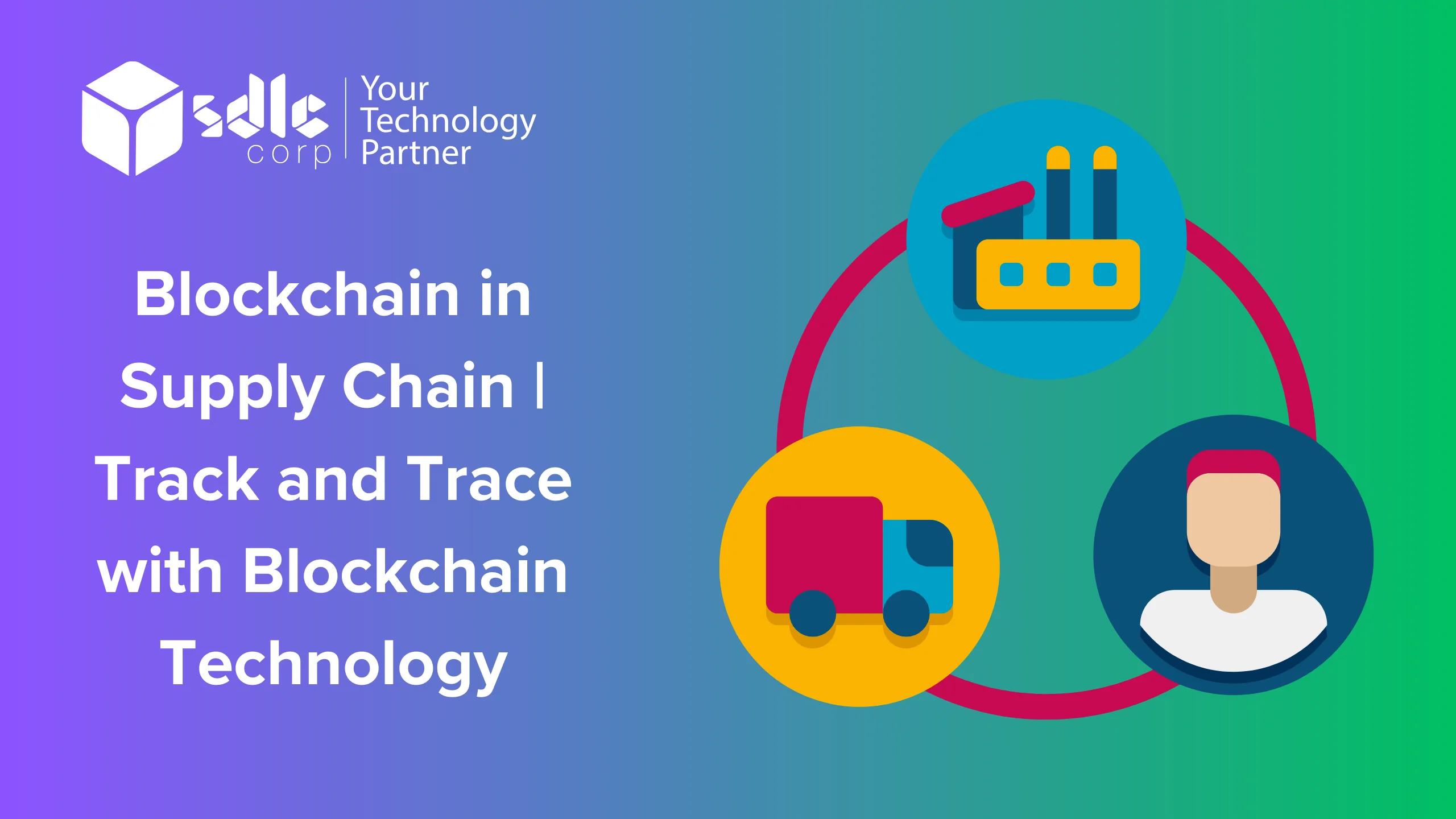Introduction
In today’s interconnected world, supply chains have grown more complex, often spanning multiple countries and industries. Ensuring transparency and efficiency in these networks has become a monumental challenge. Blockchain technology has emerged as a transformative solution to these challenges, especially in the areas of track and trace. By leveraging decentralized ledgers, stakeholders can access real-time data, enhance trust, and streamline operations.
For businesses aiming to integrate blockchain into their supply chain processes, partnering with a Blockchain Development Company can provide the expertise and customized solutions required to succeed. Whether you’re looking to enhance visibility or combat fraud, blockchain technology is reshaping how supply chains operate.
custom blockchain development company

Understanding the Role of Blockchain in Track and Trace

Tracking and tracing involve monitoring the movement of goods through various stages of the supply chain. Traditional methods often rely on manual records and siloed systems, leading to inefficiencies and inaccuracies. Blockchain changes this paradigm by offering a secure, immutable, and transparent ledger for recording transactions.
For instance, in the food industry, blockchain can ensure that every step from farm to fork is accurately recorded. Similarly, in pharmaceuticals, blockchain helps verify the authenticity of products, reducing the risk of counterfeit drugs entering the market. The ability to track goods at every stage fosters trust between manufacturers, suppliers, and consumers.
How Blockchain Works in Supply Chain Transparency
At its core, blockchain technology creates a shared database accessible to all authorized participants in the network. Each transaction is encrypted and linked to the previous one, ensuring tamper-proof records. Here’s how it benefits supply chain management:
- Real-Time Data Sharing: Blockchain allows all stakeholders to view the same set of data in real-time, eliminating discrepancies and delays.
- Enhanced Security: With encryption and consensus mechanisms, blockchain ensures data integrity, reducing the risk of fraud.
- Immutable Records: Once data is added to the blockchain, it cannot be altered. This ensures accountability and transparency.
- Smart Contracts: Automated contracts execute predefined conditions, streamlining processes like payments and delivery confirmations.
These capabilities make blockchain a game-changer for industries seeking greater efficiency and trust in their supply chain operations.
The Benefits of Blockchain in Supply Chain Management
Blockchain’s integration into supply chains offers a plethora of benefits:
- Improved Traceability: Every transaction is recorded and accessible, enabling businesses to trace products’ origins and journeys.
- Cost Reduction: By automating processes and reducing paperwork, blockchain significantly lowers operational costs.
- Faster Dispute Resolution: Disputes, such as delivery delays or payment issues, can be resolved more quickly with transparent records.
- Consumer Trust: Transparency builds trust, especially in sectors like food and fashion, where ethical sourcing is crucial.
For companies looking to implement these solutions, hiring an Expert Blockchain Developer ensures that the technology is tailored to their specific needs.
Use Cases of Blockchain in Supply Chain

Blockchain’s applications in supply chain management are vast and diverse. Some of the most impactful use cases include:
- Food Safety: Blockchain can trace contaminated products to their source in seconds, helping prevent widespread outbreaks.
- Pharmaceuticals: Counterfeit drugs are a major issue. Blockchain verifies the authenticity of medicines, ensuring patient safety.
- Luxury Goods: For high-value items like jewelry, blockchain provides proof of authenticity and ownership.
- Logistics and Shipping: Blockchain optimizes routes, tracks shipments in real-time, and reduces fraud in global trade.
The Role of Blockchain Development Companies
A Blockchain Development Company plays a pivotal role in implementing blockchain solutions for supply chains. These companies offer end-to-end Blockchain Development Services, from consultation to deployment. By hiring the Best Blockchain Developer, businesses gain access to tailored solutions that align with their unique requirements.
Whether you’re a multinational corporation or a small business, a skilled development team can design a blockchain-based supply chain solution that enhances visibility, reduces costs, and builds consumer trust. Moreover, with access to Top Blockchain Developers, companies can stay ahead of the competition in a rapidly evolving marketplace.
Top Blockchain Game Development Company

Conclusion
Blockchain technology is transforming supply chain management by providing unparalleled transparency, efficiency, and security. By enabling real-time tracking and tamper-proof records, it helps businesses optimize operations and build trust with stakeholders. For those looking to adopt this cutting-edge technology, partnering with a Blockchain Development Company is essential.
With expert guidance, you can leverage Blockchain Development Services to design systems tailored to your needs. Whether you need to Hire Blockchain Developer or are searching for the Best Blockchain Developer, the right team can make all the difference. From ensuring seamless integration to unlocking the full potential of blockchain, these professionals help businesses achieve their goals.
As blockchain continues to redefine industries, supply chain management is just one of the many areas poised for transformation. With a Blockchain Developer for Hire or a Nearshore Blockchain Developer, your organization can stay at the forefront of this revolution. Now is the time to explore the possibilities and invest in blockchain for a more transparent and efficient future.















